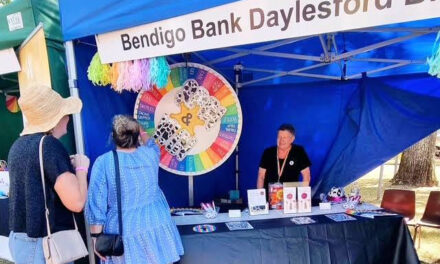Hepburn Energy has released a booklet looking at the potential of community-scale batteries across Central Victoria, offering clarity on their opportunities and constraints.
This booklet stems from the Central Victorian Greenhouse Alliance led project ‘Community Sparks’, funded under the State Government’s Neighbourhood Battery Initiative, which assessed the potential of community-scale batteries across the region. Hepburn Energy and Hepburn Shire Council were key partners on the project.
Drawing on technical analysis from independent consultants, Orkestra, legal research from the University of Melbourne and a social feasibility study from Hepburn Energy, the booklet offers in-depth information about community-scale batteries.
“Our social feasibility study highlighted that community members are interested in community-scale batteries. With terrible grid reliability in many parts of Central Victoria, lots of residents are being proactive and looking for a solution,” said Taryn Lane, General Manager of Hepburn Energy.
Community batteries have been proposed as a tool to address this issue. Some advocates suggest they can improve reliability, enable more solar, cut greenhouse gas emissions and help households save on bills. But the team at Hepburn Energy were surprised to find a more complicated picture.
“When we received technical reports back from Orkestra, we were stunned. The conventional battery that many people are advocating for – one located on the street level, at an electricity transformer – doesn’t seem remotely viable. They’re just too expensive, so community members would face an ongoing cost, rather than saving, and there is a risk of stranded assets with that model” Stated Ms Lane.
While the booklet offers clear cautions about some models of community-scale batteries, other opportunities are presented. “There’s lots of potential for behind-the-meter batteries. These can be located at community facilities, or even at an industrial facility, but in a way that offers benefits back to the community. Back up power systems are another no-brainer, particularly for regional areas such as our Shire, and another viable model is batteries co-located at a community generator, such as what we’re proposing at Hepburn Energy.”
The report looks at these different models in detail, offering guidance on relevant regulations and case studies of existing community-scale batteries.
“We hope this booklet can answer lots of the questions we’ve been receiving about this technology. It’s an exciting time to see the energy transition accelerate. We just need to ensure the models we choose actually solve local problems like energy security and achieving zero-net emissions,” said Ms Lane.
For more information and a copy of the report, go to https://www.hepburnenergy.coop/generation-batteries/.





